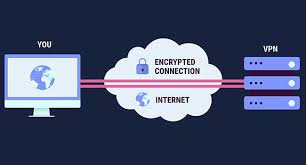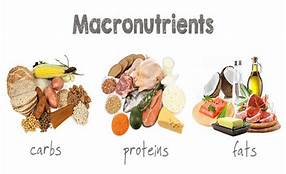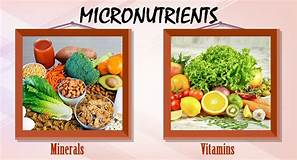The foods you eat effects your health and quality of life .Although eating healthy can be fairly simple, the rise in popular "diets" and dieting trends has caused confusion.
In fact, these trends often distract from the basic nutrition principles that are most important.
Why Should You Eat Healthy?
Eating healthy can drastically reduce your chances of developing heart disease and cancer, the world's leading killers.
A good diet can improve all aspects of life, from brain function to physical performance. In fact, food affects all your cells and organs.
If you participate in exercise or sports, there is no doubt that a healthy diet will help you perform better.
From disease risk to brain function and physical performance, a healthy diet is vital for every aspect of life.
Calories Explained
While calorie counting isn't always necessary, total calorie intake still plays a key role in weight control and health.
If you put in more calories than you burn, you will store them as new body fat. If you consume fewer calories than you burn every day, you will lose weight.
If you want to lose weight, you must create some form of calorie deficit
In contrast, if you are trying to gain weight and increase muscle mass, then you need to eat more than your body burns.
Calories and energy balance are important, regardless of the composition of your diet.
Macronutrients Explained
The three macronutrients are carbohydrates, fats and protein.
These nutrients are needed in relatively large amounts. They provide calories and have various functions in your body.
Here are some common foods within each macronutrient group:
Carbs: 4 calories per gram. All starchy foods like bread, pasta and potatoes. Also includes fruit, legumes, juice, sugar and some dairy products.
Protein: 4 calories per gram. Main sources include meat and fish, dairy, eggs, legumes and vegetarian alternatives like tofu.
Fats: 9 calories per gram. Main sources include nuts, seeds, oils, butter, cheese, oily fish and fatty meat.
The quantity of macronutrient you should consume depends on your lifestyle and goals, as well as your personal preferences.
Micronutrients Explained
Micronutrients are important vitamins and minerals that you require in smaller doses.
Some of the most common micronutrients you should know include:
Magnesium: Plays a role in over 600 cellular processes, including energy production, nervous system function and muscle contraction.
Potassium: This mineral is important for blood pressure control, fluid balance and the function of your muscles and nerves .
Iron: Primarily known for carrying oxygen in the blood, iron also has many other benefits, including improved immune and brain function.
Calcium: An important structural component of bones and teeth, and also a key mineral for your heart, muscles and nervous system.
All of the vitamins and minerals are "essential" nutrients, meaning that you must get them from the diet in order to survive.
The daily requirement of each micronutrient varies between individuals. If you eat a real food-based diet that includes plants and animals, then you should get all the micronutrients your body needs without taking a supplement.
Micronutrients are important vitamins and minerals that play key roles in your cells and organs.
Eating Whole Foods is Important
You should aim to consume whole foods at least 80-90% of the time.
The term "whole foods" generally describes natural, unprocessed foods containing only one ingredient.
If the product looks like it was made in a factory, then it's probably not a whole food.
Whole foods have fewer calories and more nutrients per serving than processed foods.
Foods to Eat
Vegetables: These should play a fundamental role at most meals. They are low in calories yet full of important micronutrients and fiber.
Fruits: A natural sweet treat, fruit provides micronutrients and antioxidants that can help improve health.
Meat and fish: Meat and fish have been the major sources of protein throughout evolution. They are a staple in the human diet, although vegetarian and vegan diets have become popular as well.
Eggs: Considered one of the healthiest foods on the planet, whole eggs pack a powerful combination of protein, beneficial fats and micronutrients.
Beans and legumes: These are fantastic sources of fiber, protein and micronutrients.
Beverages: Water should make up the majority of your fluid intake, along with drinks like coffee and tea.
Herbs and spices: These are often very high in nutrients and beneficial plant compounds.
For a longer list, here is an article with 50 super healthy foods.
Base your diet on these healthy whole foods and ingredients. They'll provide all the nutrients that your body needs.
Foods to Avoid Most of the Time.
Sugar-based products: Foods high in sugar, especially sugary drinks, are linked to obesity and type 2 diabetes.
Trans fats: Also known as partially hydrogenated fats, trans fats have been linked to serious diseases, such as heart disease.
Refined carbs: Foods that are high in refined carbs, such as white bread, are linked to overeating, obesity and metabolic disease.
While no food is strictly off limits, overeating certain foods can increase disease risk and lead to weight gain.
Now Tailor Your Diet
First, assess your calorie needs based on factors like your activity levels and weight goals.
Quite simple, if you want to lose weight, you must eat less than you burn. If you want to gain weight, you should consume more calories than you burn.
If you dont't likke calorie counting, you can simply apply the rules discussed above, such as focusing on whole foods.
If you have a certain deficiency or are at risk of developing one, you may wish to tailor your diet. For instance, vegetarians or people who eliminate certain food groups are at greater risk of missing out on some nutrients.
In general, you should consume foods of various types and colors to ensure you get plenty of all the macro- and micronutrients.
Based on research, athletes and those looking to lose weight should consider increasing their protein intake. In addition, a lower-carb diet may work wonders for some individuals trying to lose weight.
Following a healthy diet and exercising can give you an even bigger health boost.
It is also crucial to get good sleep. Research shows that sleep is just as important as nutrition for disease risk.
Hydration and water intake are also mandatory. Drink when you're thirsty and stay well hydrated all day.
And also, try to minimize stress.stress is linked to many health problems.










Comments
Post a Comment